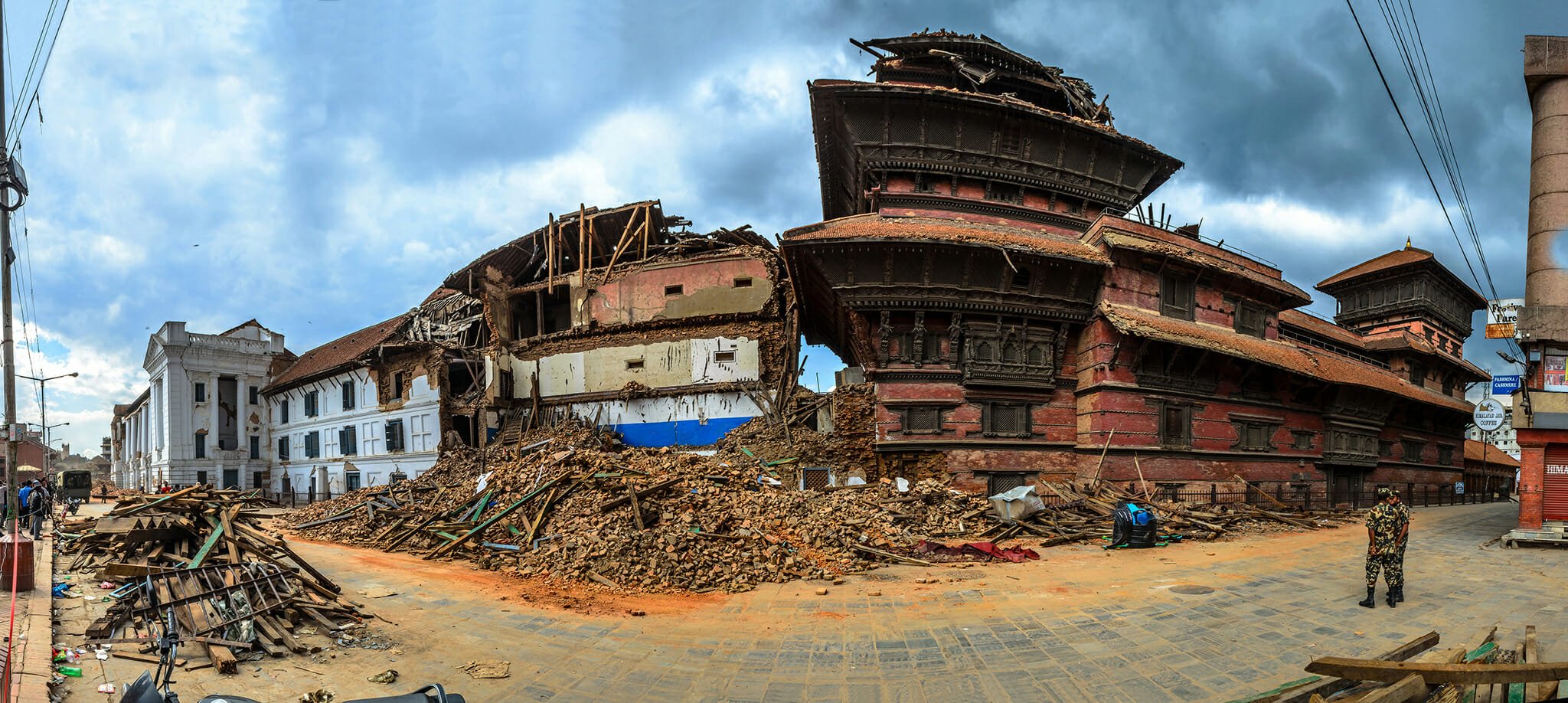Universitetsavisen
Nørregade 10
1165 København K
Tlf: 21 17 95 65 (man-fre kl. 9-15)
E-mail: uni-avis@adm.ku.dk
Konference
Konference — This public seminar presents findings from an international research project investigating the socio-political effects of Nepal’s 2015 earthquakes in dialogue with scholars working on disasters in other areas of the world. Funded by a Canadian Social Science and Humanities Research Council (SSHRC) Partnership Development Grant from 2017-2020, “Expertise, Labour and Mobility in Nepal’s Post-Conflict, Post-Disaster Reconstruction: Construction, Fi-nance and Law as Domains of Social Transformation” is a trilateral partnership between Canada, Denmark and Nepal.
Date & Time:
Place:
The Royal Danish Academy of Sciences and Letters, H.C. Andersens Boulevard 35, DK-1553 Copenhagen V.
Hosted by:
Local organizers: Cameron David Warner (Aarhus University), Dan Hirslund (University of Copenhagen) and Kristian Cedervall Lauta (University of Copenhagen)
Cost:
Free
In 2015, Nepal was struck by its worst natural disaster in several decades, which left 9,000 people dead, injured 20,000 and destroyed over 600,000 homes. The devastating socio-economic and environmental impacts of this catastrophe were compounded by the country’s protracted political impasse over the adoption of a new constitution in the wake of a decade-long insurgency and the contentious legitimacy of dominant state actors. Eight months after the earthquakes, The National Reconstruction Authority was established by the government to lead and manage the highly contentious and protracted process of reconstruction. Nepal’s reconstruction process has unfolded in a context of rapid social and political transformation, shaped by competing conceptions of expertise, shifting labour markets, and high mobility.
This public seminar presents findings from an international research project investigating the socio-political effects of Nepal’s 2015 earthquakes in dialogue with scholars working on disasters in other areas of the world. Funded by a Canadian Social Science and Humanities Research Council (SSHRC) Partnership Development Grant from 2017-2020, “Expertise, Labour and Mobility in Nepal’s Post-Conflict, Post-Disaster Reconstruction: Construction, Finance and Law as Domains of Social Transformation” is a trilateral partnership between Canada, Denmark and Nepal.
Program
1400-1410 Welcome and introduction, Kristian Cedervall Lauta and Sara Shneiderman
1410-1500 Panel A: Recovery and reconstruction policies and experiences from Nepal, Jeevan Baniya (Social Science Baha), Katharine Rankin (University of Toronto) and Dan Hirslund (University of Copenhagen)
1500-1550 Panel B: Lessons for the international communities from Nepal, Deepak Thapa (Social Science Baha), Phillippe Le Billon (University of British Columbia), and Bishnu Pandey (British Columbia Institute of Technology)
1550-1610 Tea/Coffee break
1610-1700 Roundtable on comparative aspects of disaster reconstruction, Sara Shneiderman (University of British Columbia), Emmanuel Raju (University of Copenhagen)
1700-1730 Final Discussion
1730-1830 Reception
International experts confirmed:
Omer Aijazi (University of Toronto), Jeevan Baniya (Social Science Baha, Nepal), Katherine Hacker (University of British Columbia), Phillippe Le Billon (University of British Columbia), Bina Limbu (Social Science Baha, Nepal), Bishnu Pandey (British Columbia Institute of Technology), Ramjee Parajulee (Capilano University), Dinesh Paudel (Appalachian State University), Katharine Rankin (University of Toronto), Nabin Rawal (Social Science Baha, Nepal), Sara Shneiderman (University of British Columbia), Manoj Suji (Social Science Baha, Nepal), Deepak Thapa (Social Science Baha, Nepal).
